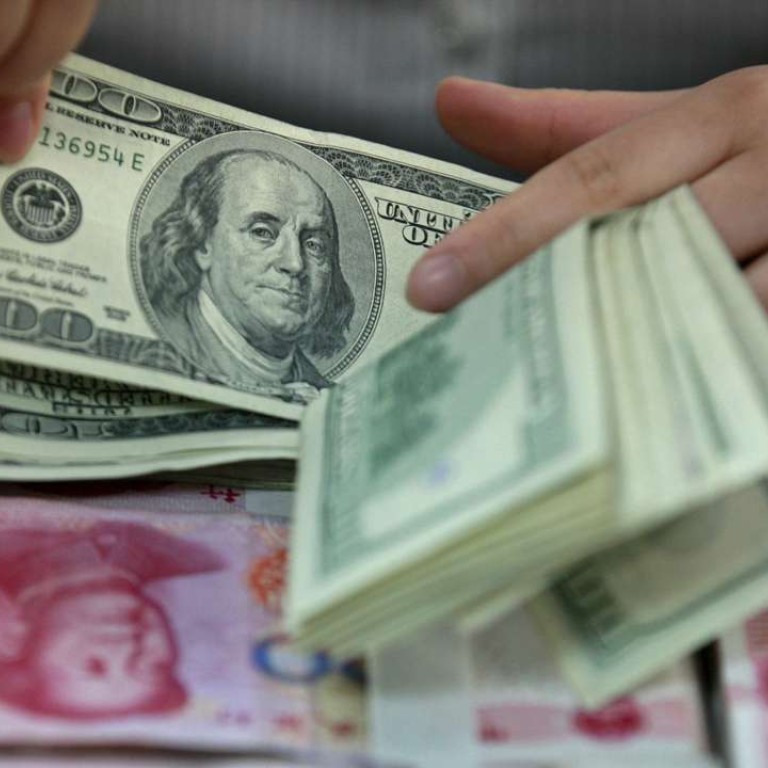
Is Beijing’s bond market opening too late and too utilitarian?
China seeks to open up its bond market to offset capital outflow, but analysts warn it is far from enough
As money continues to leave China and the yuan weakens further against the dollar, Beijing is actively seeking to lure foreign investors to the country’s onshore bond market.
As the latest enticement, Ma Jun, the chief economist at the People’s Bank of China’s research bureau, promised at a briefing last week that Beijing would allow foreign investors to trade derivatives, help them to remit investment returns abroad and extend trading hours.
However, analysts doubted such moves will make much difference in narrowing China’s capital account deficit at a time when domestic players are turning away from bonds amid rising interest rates, falling liquidity supply and a slew of fraudulent bond deals.
The appetite for yuan assets has steadily declined because of the yuan’s weakness against the greenback – the yuan has lost about 7 per cent against the dollar this year while the annual return of the newly issued China’s government bond is just 3.5 per cent. “Offshore” yuan markets, where investment and trading of yuan bonds are freer, are also shrinking quickly as few investors want to increase their yuan exposure.
“The bond market inflow is not enough to offset the nation’s capital outflows, nor to support the yuan,” said Xie Yaxuan, chief macro analyst with China Merchants Securities.
China’s central bank had previously forecast that the yuan’s inclusion into the International Monetary Fund’s special drawing rights basket, a move to accredit the currency’s status as a reserve currency, could bring in US$200 billion in five years if the yuan matches the Japanese yen or British sterling in the proportion of the global reserve portfolio.
Those estimates proved overly optimistic. Yuan inflow was 15.2 billion yuan in October when the yuan was officially included in the currency basket and 15.6 billion yuan in November, according to official data. Foreign investors hold less than two per cent of China’s onshore bond market, the world’s No.3 bond market in terms of size.
In contrast, outbound investment was US$47.9 billion more than that of foreign direct investment in the first 11 months of the year, and China decreased it foreign exchange reserves by about US$400 billion in the same period.
“China bond prices are much lower now than before,” said Zhang Xinwen, an analyst with Great Wall Securities in Beijing. “But the expectation of a weaker yuan has stopped most foreign buyers from buying into China’s bonds.”
The market is also risky. Earlier this month, just hours after the US Federal Reserve raised interest rates, China’s bond futures plunged to their daily limit floor.
Meanwhile, after decades of closed-door operations, China’s onshore bond market, plagued by intrusive regulations and shady deals, is an alien land for investors who are accustomed to mature debt markets.
For example, recent market turmoil caused by a brokerage firm exposed the tip of the iceberg of “proxy holdings”, a large grey area in China’s interbank bond market. The size of “proxy holdings”, or obscuring the true owner of bonds to skirt around regulatory requirements, could be as high as 12 trillion yuan, or 15 per cent of the tradable bonds, according to Shui Ruheng, chairman of China Securities Depository & Clearing Corp.
The expectation of a weaker yuan has stopped most foreign buyers from buying into China’s bonds
As China’s central bank gradually reduces its supply of cheap funds, more problems are expected to surface, another factor that is deterring prudent investors who seek safe returns, one analyst said.
“Institutional investors have felt rising risks of non-transparent businesses, many of which have not yet been exposed,” said Liu Dongliang, an analyst with China Merchants Bank.
The warm invitation extended by the central bank comes at a time when a large correction, or even a meltdown, is looming in China’s bond market as the central bank prepares to enhance supervision of off-balance activities of banks, or shadow banking deals.
Bonds were a major investment option when China started its latest round of fiscal and monetary loosening to support its economy in 2014. About 14.8 trillion yuan, or 56 per cent, of wealth management funds were invested in bonds and money market products in the first half of this year, according to China International Capital Corp.
A foreign exchange regulator, who declined to be named, said China’s opening of the bond market is not intended as an immediate remedy to the country’s financial woes but is part of a long-term strategy to create an open market.
“It’s actually good timing now to clear up some technical hurdles for money inflows,” she said.
Additional reporting by Wendy Wu and Jane Cai.

